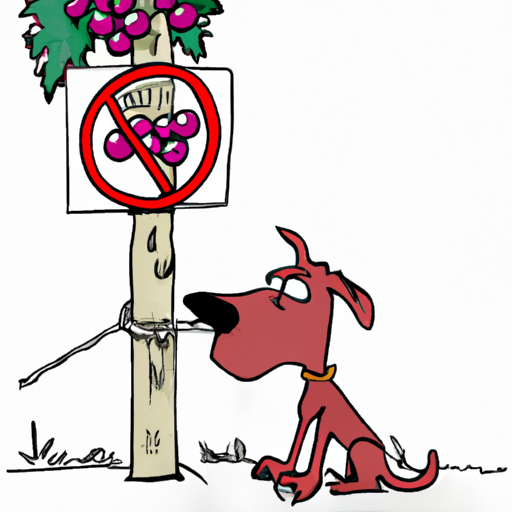Grapes, those small, juicy, and sweet fruits, are a favorite among many of us. But can dogs eat grapes? The answer is a resounding no. Grapes and raisins are among the most toxic foods to dogs, causing serious health problems and even death in some cases. This article will delve into the reasons why grapes are dangerous to dogs, the symptoms of grape toxicity, and what to do if your dog eats grapes.
- Table of Contents
- Why are Grapes Toxic to Dogs?
- Symptoms of Grape Toxicity in Dogs
- What to Do If Your Dog Eats Grapes
- Alternative Treats for Dogs
-
Frequently Asked Questions
-
Key Takeaways
- Grapes are highly toxic to dogs and can cause severe health problems.
- There is no safe amount of grapes for dogs to consume.
- If your dog has consumed grapes, seek veterinary help immediately.
Why are Grapes Toxic to Dogs?
The exact cause of grape toxicity in dogs is still a mystery to veterinary science. However, researchers believe it’s likely due to a compound found in grapes that dogs’ bodies can’t process. While we can enjoy grapes without any adverse effects, dogs’ bodies react differently, leading to potentially fatal complications [^1^].
According to the ASPCA, even small amounts can cause severe kidney damage and renal failure in dogs. Unfortunately, the toxic dose varies widely among individual dogs. Some dogs may fall ill after eating just one grape, while others can eat several and show no symptoms at all.
Here’s a table showing the potential effects of grape toxicity in dogs:
| Symptoms | Severity | Duration |
|---|---|---|
| Vomiting | Severe | Hours |
| Diarrhea | Severe | Hours |
| Abdominal pain | Severe | Hours |
| Kidney failure | Fatal | Days |
Symptoms of Grape Toxicity in Dogs
If your dog has consumed grapes, it’s crucial to watch for signs of grape toxicity. These symptoms usually occur within a few hours of consumption. The most common symptoms include:
- Vomiting
- Diarrhea
- Lethargy
- Loss of appetite
- Abdominal pain
- Decreased urination
- Seizures in severe cases
What to Do If Your Dog Eats Grapes
If your dog eats grapes, it’s essential to act quickly. Contact your veterinarian or a pet poison control center immediately. They may instruct you to induce vomiting if your dog has eaten the grapes within the last two hours. However, you should never induce vomiting without talking to a professional first, as it can cause additional harm.
If you can’t reach your vet, the Pet Poison Helpline is another useful resource. They have experts available 24/7 to guide you through the process.
Alternative Treats for Dogs
While grapes are off-limits, there are plenty of safe, healthy treats that dogs can enjoy. For example, apples, blueberries, and carrots are all good choices. Just be sure to remove any seeds or pits, as these can pose a choking hazard. You can find more information about safe fruit and vegetable treats on OneTopDog.
Frequently Asked Questions
Q: Can dogs eat any amount of grapes safely?
A: No, there is no safe amount of grapes for dogs to consume. Even a single grape can cause severe illness in some dogs.
Q: What other foods are toxic to dogs?
A: Some other common foods that are toxic to dogs include chocolate, caffeine, alcohol, onions, garlic, avocados, and xylitol (a sweetener used in many sugar-free foods). OneTopDog has a comprehensive list.
Q: What should I do if my dog eats grapes?
A: If your dog eats grapes, contact your veterinarian or a pet poison control center immediately.
In conclusion, while we love sharing our lives and even our foods with our beloved canine companions, some things are better kept to ourselves. And grapes definitely fall into that category. If you want to give your dog a fruit treat, consider safe alternatives like apples or blueberries. Remember, when it comes to your dog’s health, it’s always better to be safe than sorry.



